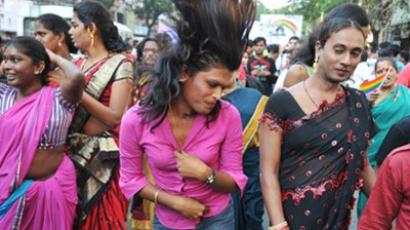Deadly blast rocks New Delhi court
A bomb blast has rocked the Indian capital, New Delhi, killing nine and injuring at least 65 outside the city's High Court.The Harkat-ul-Jihad terror group has taken responsibility for the attack.Their message was sent to major Indian Media outlets.
Sarat Chandra Sinha, the National Investigation Agency (NIA) chief, has confirmed the information in the press and stated that the HuJi are responsible for the blast.The terrorists claim the latest attack on the New Delhi Court aims to influence the case of Mohammed Afzal, the only survivor of the assault on the Indian Parliament in 2001, as was written in their message. Afzal was accused of an act of war against India and sentenced to death. The execution has been postponed several times since 2002 due to appeals and calls for a pardon. Harkat-ul-Jihadis is an Islamic fundamentalist organization most active in South Asian countries of Pakistan, Bangladesh and India since the early 1990s. It was banned in Bangladesh in 2005.The Wednesday's bomb, which was reportedly hidden in a suitcase, exploded outside the gate leading to the High Court in New Delhi, AP news agency reports. The blast occurred near a large crowd of people, waiting in line to receive passes into the building.
Some rushed to the scene of the tragedy to assist the injured, piling the injured into auto-rickshaws to take them to the hospital. Ambulances also arrived soon after.Indian authorities have reportedly found the remains of the suitcase which allegedly contained the bomb.Sniffer dogs and bomb disposal specialists are inspecting the site for any further explosives. “Today’s attack in Delhi is a continuation of a proxy war against India since May 1990,” suggests Commander Uday Bhaskar, an Indian writer and researcher.“There is a certain index of intensity of attacks since that day. The most virulent terror act was in November 2008 in Mumbai. We do have a pattern of all those attacks to identify the responsible groups,” he adds.But what is even worse, the writer states, is that now terrorism is starting to spread in within India and terror groups appear to be masterminded not only from Pakistan, for example. “If earlier the attacks were masterminded from outside India, to the date we have identified terror groups within India, which only raises anxiety. Groups like Indian Mujahedeen have domestic contour, and that is the cause for concern,” the researcher says.
Siddharth Ramana, a contributor and consultant to World Analysis.net, shares with RT his view on the roots and dangers of the Harkat-ul-Jihad or HuJi terror group. “The mentality of this group is quite strong,” Ramana believes. No information about the ties of it with Al-Qaeda is available for now, but there were relations between the two organizations in the past, the expert said.“HuJi is a part of what they call ‘313’ brigade, which is a conglomeration or terror groups, where Al-Qaeda participates in too,” explains the consultant. The Mumbai attack was believed to be a part of their plots, meaning the recent attack shall be looked at in relation to other Pakistani-rooted terror acts, claims Ramana.













